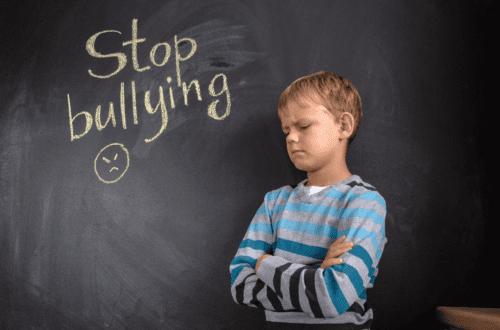Stigma for Mental Illness
Mental illness is an issue that affects people of all ages, genders, and walks of life. Unfortunately, there is still a stigma for mental illness that keeps individuals from speaking out about their experiences and seeking the help they need. We must come together to realize that mental illness should be talked about openly and honestly. It shouldn’t be treated as something shameful or wrong. After all, no one would criticize someone for getting physical treatment. So, why do we judge those who seek mental health care?

Mental Illness Stigma
Mental illness is something that affects many people around the world, yet it continues to be met with stigma and discrimination. Many people erroneously believe mental illness is a sign of weakness or poor character. This can lead to marginalization and exclusion from society. As a result, those living with mental illness may feel ashamed or embarrassed, making them less likely to seek help.
The reality is that mental health conditions are complex and highly individualized. It’s not as simple as just “pulling yourself together”. To tackle this issue, we must understand its causes and educate ourselves about the facts. It’s time for us all to get onboard in breaking down the stigma surrounding mental illness. This will enable those struggling can find support without the fear of judgement.
Definition of Mental Illness
Mental illness is not something that can be defined with a single sentence. It’s a pervasive and complex condition, marked by symptoms that range from mild to severe. Unfortunately, there is still a stigma attached to mental illnesses in many parts of the world. However, understanding what it means to have a mental illness is an important step in destigmatizing it. This will provide the necessary support for those who are affected.
So just what is mental illness? It’s essentially an umbrella term used to describe any disorder related to our psychological or emotional wellbeing. This can encompass anything from depression, anxiety and bipolar disorder right through to schizophrenia or personality disorders. Symptoms vary between individuals but usually involve changes in mood, behavior or thinking patterns that interfere with everyday life – such as difficulty concentrating or sleeping – as well as physical symptoms like headaches and stomach issues that are seemingly unrelated.
Causes of Stigma
Mental illness is a term that comes with its own set of stigmas. It’s no secret that individuals suffering from mental health conditions are often subject to unfair judgement and social exclusion. But what exactly causes this stigma?
The origin of stigma surrounding mental illness may be rooted in fear and ignorance. This is due to many people not understanding the inner workings of mental health issues. Furthermore, some beliefs about those who suffer from these illnesses may stem from negative media portrayals and outdated stereotypes. Other factors that can contribute to the stigma include cultural norms, lack of education on the topic, or even personal biases held by family members or friends.
At the end of the day, it’s important to remember that there is still much ground to cover when it comes to breaking down barriers and reducing the stigma surrounding mental illness – but awareness is key!
Effects of Stigma
Mental illness: it’s something that affects many people yet is rarely discussed in public. However, the stigma surrounding mental illness can have serious consequences—both for those struggling and for society as a whole.
The effects of stigma are well documented; from higher rates of unemployment to increased feelings of shame, not being able to discuss mental health issues openly can lead to a host of problems. It also leads to lower rates of treatment and diagnosis, exacerbating the issue even further. Stigma therefore has a ripple effect on our society—but it doesn’t have to be this way! By recognizing and understanding the effects of stigma on mental health, we can start taking steps towards creating more inclusive communities where everyone is supported in their journey towards wellness.
Ways to Fight Stigma
Is stigma for mental illness getting you down? It’s time to fight back! Fighting the stigma associated with mental health can be a difficult battle, but with the right tools, it is possible to make a difference. Here are some ways you can help reduce the stigma surrounding mental illness:
First of all, take it upon yourself to learn more about mental health issues. When we understand the causes and facts behind these illnesses, we are in a better position to speak out against the myths and misinformation that sometimes contribute to stigmatizing attitudes. Educate yourself and those around you on what constitutes ‘normal’ behavior and how we can support people living with these conditions.
Secondly, talk openly about your own experiences or those of friends or family members who have been affected by mental illness. This can help encourage others to do the same. And finally, be an advocate for those living with mental illness. Help break down stereotypes and misconceptions by supporting legislation that helps people in your community get the treatment they need.
Final Thoughts: Reducing Stigma
Mental illness has long been a taboo subject, oftentimes shrouded in stigma and misunderstanding. It’s time to put an end to this stigma: It’s time for everyone to join together and work to reduce the social stigmas that often come with mental illnesses.
Reducing the stigma associated with mental illness can be done in a few simple steps. First off, it’s important to talk about mental health issues openly and honestly — there shouldn’t be any shame or embarrassment surrounding these topics. Secondly, it’s essential for people to take the time to educate themselves on various mental health conditions so that they can better understand their friends, family members, and coworkers who may be suffering from them. Lastly, people should be aware of how they can act and speak toward others who may be struggling with mental health issues.







One Comment
Pingback: